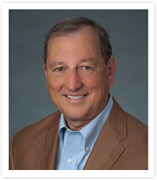 Author, consultant and lecturer Robert Hall, pictured, discusses the relational unraveling that appears to consume Thanksgiving dinners.
Author, consultant and lecturer Robert Hall, pictured, discusses the relational unraveling that appears to consume Thanksgiving dinners.
by Robert E. Hall
So the food fight that was the 2012 election is over and now we head to Grandmas or some relational approximation thereto for Thanksgiving turkey. We arrive there a nation more divided, contentious and wounded than any time in our lifetime. A series of difficult issues enlarged for political gain have further wedged us apart religious vs. secular, liberal vs. conservative, young vs. old, ethnic vs. Anglos, business vs. government, urban vs. rural, married vs. single, pro-life vs. pro-choice, gay vs. straight, rich vs. poor. It is not new that there are differences among us as we share our Thanksgiving feast though the differences have grown some in recent decades. What is new is how we have joined tribes, exaggerated our differences and embraced warfare against those unlike us. Our heated language war on women, class warfare, war on the rich, war on marriage, religious-war, war-on-the-poor, partisan battles says it all.
It seems surviving Thanksgiving gets harder every year and it tempts a response that has become our new normal fight or flight from relationships. For many at the table there will be an unspoken rule: dont dare bring up any of these controversial issues. A spirit of thankfulness is difficult in the midst of tribal warfare.
Unfortunately the animas in our politics is but one part of a broader relationship unraveling. It starts at home and accumulates across work, politics and faith. At home, the facts of flight from relationships are both well-known and jarring. We might call it the tyranny of the 50s in the past 50 years, divorce is up 50 percent, marriage is down 50 percent and in 2012 for the first time 50 percent of children born to those under 30 will be born to unwed mothers with a poverty rate five times that of their married counterparts. Further, in the last 20 years the number of close, go-to friends has dropped by a third. The number of people reporting no close friends has tripled!
In the world of work, todays high unemployment represents a painful form of relationship separation for anyone who has lost a job. However, even for the five years prior to the 2008 recession, turnover among skilled, sales and managerial positions doubled and a 2012 MetLife survey found that a third of workers planned to leave their employers by year-end. Likewise customer defections rose 30 percent for the five year leading up to 2008 and 86 percent of consumers now trust corporation less than five years ago. Something is happening to our relational glue.
Political wedge issues and partisan gridlock have contributed to our devolvement from citizens and voters to self-focused, consumers asking whats in it for me not to mention the downgrading of our U.S. credit rating. (Yes, the relational cliff precedes the fiscal cliff.) This divide is not just your imagination. The number who self-identify as ideologically extreme in their political views has risen from 29 percent in 1972 to 49 percent today even though our actual differences on the content of issues are up only about 10 percent. Many have been turned-off by the fight and are choosing flight. Defection from political parties doubled the past 50 years; now 44 percent call themselves independent, up 8 percent since 2008. Likewise, as faith has become more divisive, flight from religious affiliation has doubled in the past two decades and jumped from 15 percent five years ago to 20 percent now.
Collectively this relational decline is the most destructive trend we face. We are becoming a society of strangers and estrangement. Who would have guessed that sports inherently competitive and partisan would be one of the safest topics at the Thanksgiving table this year? How did we get here? A series of wonderful societal advancements have produced unintended consequences: devalued relationships. For example, technology certainly connects us in wonderful ways but it can also isolate us. We can now get informed without interacting with humans by spying on Facebook, accessing new media and websites. The evidence of our relational isolation: The American Academy of Pediatrics has coined the term Facebook Depression and the Menninger Clinic now calls Technology Addiction an official impulse disorder.
Worse is how technology can be used to wound. People dial-up talk-radio, cable news and blogs offering just the one-sided opinions and shouting matches that affirm feelings of superiority. Strife monetized. Cyber bullying and a vitriolic blogosphere are brutal. The head of software development at my company used to say, Give a fool a faster tool, and what you get is a faster fool. The carnage of faster, more assured and better-armed fools disables relationships and undermines our society.
General Peter Pace, addressing sectarian violence at the height of the Iraq war said: If the Iraqi people as a whole decided today that, in my words now, they love their children more than they hate their neighborthis could come to a quick conclusion. Good advice in Iraq, in facing a fiscal cliff and at Thanksgiving because as Henri Nouwen reminds us, community is the place where the person you least want to live with, always lives. As we share the table this Thanksgiving with family and friends including those hard to stomach we must decide to love what unites us more than we hate what divides us.
Robert Hall is an author, consultant, and speaker on relationships. He is the author of This Land of Strangers: The Relationship Crisis That Imperils Home, Work, Politics and Faith.






Comments